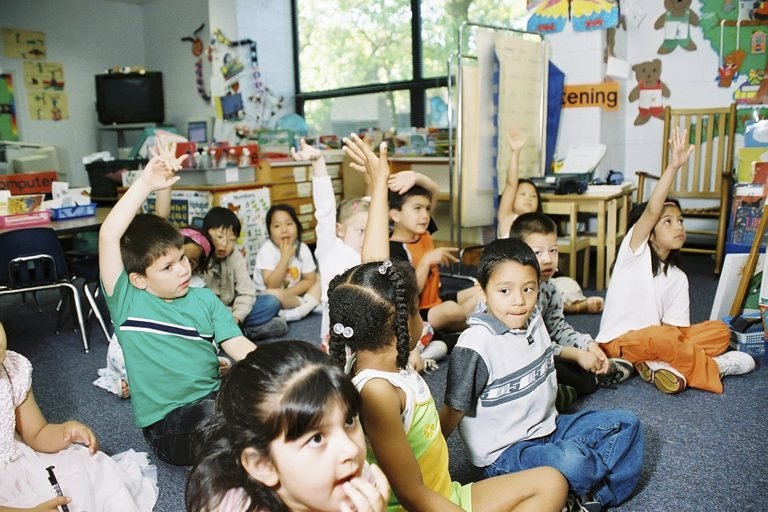The 8 Crazy Stereotypes Used in Wisconsin to Justify Single-Sex Classes and How They’re Boomeranging Back on Administrators


This week, after a tweet by feminist Abi Bechtel went viral, Target stores agreed to abandon gendered separation of kids’ toys and bedding. Word is getting out: Sex stereotyping will not fly in 2015.
If you think gender-separation of toys is bad, what about sex separation of kids? Consider the following examples drawn from the Beloit Area School District in Wisconsin, which had separated boys and girls into separate academic classes:
- Materials sent home to parents claimed that girls “learn better sitting down,” while “when a young boy sits down, his brain turns off” and that boys require “activities where [they] can move around” while girls require “a quiet, calm classroom environment.”
- An informational packet distributed to parents claimed that “girls tend to ‘whisper’ while boys tend to ‘shout’” and cautioned that boys have “a shorter attention span than girls.”
- Teacher training materials claimed that boys “are instinctive/impulsive” while girls “read emotions and analyze the emotion.”
- The same materials instructed teachers to use different instructional techniques for boys and girls — for example, to “use a loud voice” and “shooting questions” for boys and to “make eye contact and smile” for girls.
- The materials suggested different approaches for teaching literature to girls, advising teachers to ask boys “what would you DO if” and girls “How might/would you FEEL if…”
- For math, teachers were advised to “do NUMBERS for numbers’ sake” for boys but to “demonstrate RELEVANCE to the real world” for girls.
- In social studies, teachers were advised to discuss “exciting event[s],” “focus on REAL men,” and “Highlight technical details and use maps” when teaching boys, but to ask girls “how would you feel if…” and use “art/music/literature.”
- They advised using different techniques to motivate boys and girls such as forming “teams” and using “hierarchy” and “competition” for boys, while “get[ting] girls to “care” because they are motivated by “being accepted, liked, loved.”
Refusing to take these stereotypes “sitting down,” the ACLU and the ACLU of Wisconsin filed a complaint with the Department of Education’s Office for Civil Rights against Beloit and two other Wisconsin school districts cataloguing this evidence, which was drawn from documents produced by the schools. The complaints were among those filed in districts across the country (four in Florida, one in Austin, TX, and one in Idaho) as part of the Teach Kids, Not Stereotypes campaign, which aims to stop the proliferation of single-sex classrooms that intentionally treat kids differently based on whether they are a boy or a girl. That’s the very definition of sex discrimination.
In the wake of the campaign, OCR issued a FAQ document making clear that schools instituting single-sex classrooms may not “rely on overbroad generalizations about the different talents, capacities, or preferences of either sex.”
Just last week, we learned that after the agency launched its investigation in Beloit, the district agreed to abandon the single-sex classrooms in all its elementary schools and submit to monitoring by the federal agency — making it the last of the three districts we filed complaints against in Wisconsin to eliminate the unlawful single-sex classes. (In a related win, the New Jersey Department of Education agreed last week to abandon ill-advised regulations that would have relaxed state rules for instituting single-sex classrooms after the ACLU of New Jersey pointed out numerous legal problems with the proposal.)
But more work remains to be done.
Many of our complaints remain pending with OCR, despite widespread evidence of blatant sex stereotypes and the agency’s clear directives that this type of program is generally illegal. To make matters worse, some school districts are doubling down on their stereotype-based programs. Now is the time for federal civil rights officials to build on the victory in Wisconsin and require that the single-sex classrooms in our remaining complaints be discontinued.
If major corporate retailers are finally beginning to understand that there is no excuse for sex stereotyping kids, then it’s long past time for our public schools to get the same message: Students deserve to be educated based on their individual needs and interests, not based on their sex.

